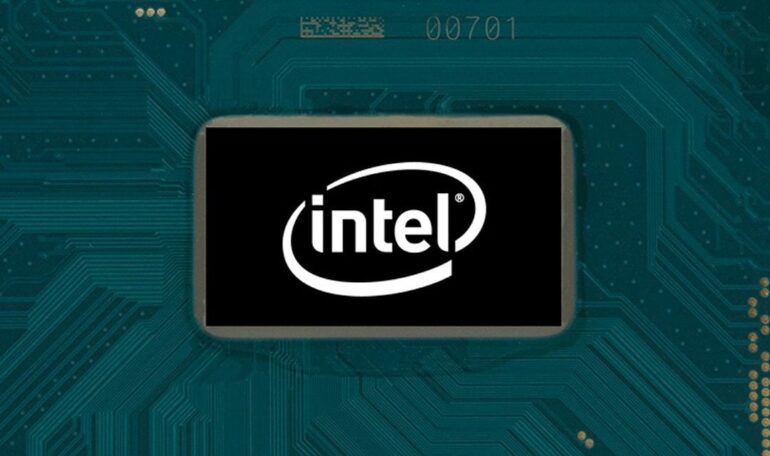TL;DR:
- Intel showcases AI innovation at the annual conference, emphasizing generative AI and LLM.
- Announces AI PC launch date for December 14, featuring Neural Processing Unit (NPU).
- Core Ultra processors, codenamed Meteor Lake, to revolutionize client processing with integrated NPU.
- Acer collaborates with Intel on AI applications for Core Ultra.
- Industry experts emphasize the significance of local AI processing for PCs.
- Intel introduces efficiency and productivity cores, plus new Xeon processors.
- Intel’s commitment to scaling AI across client, edge, network, and cloud environments.
- OpenVINO toolkit updates and efforts to break Nvidia’s CUDA stranglehold.
- Project Strata edge-native software platform to launch in 2024.
Main AI News:
The spotlight was on AI at the opening of the third annual Intel Innovation conference in San Jose, California. Generative AI and LLM took center stage, fueled by the previous year’s game-changing introduction of ChatGPT. While faster GPUs and CPUs for data centers have dominated headlines, Intel is determined to prove its worth to developers and investors, showcasing both its hardware and software capabilities.
Though Nvidia’s GPUs have captured much attention, Intel has firmly established itself as a contender, particularly in the realm of artificial intelligence. Intel is setting its sights on Nvidia, primarily in the domain of CPUs, but it’s also delving into the software sector to tap into the AI craze.
Intel’s CEO, Pat Gelsinger, in his keynote speech, emphasized the theme of “AI Everywhere.” In a surprise move, he announced a December 14 launch date for the AI PC, powered by Intel Core Ultra processors and featuring a new abbreviation: NPU, or Neural Processing Unit. This announcement followed his initial vision for the AI PC era, unveiled in July.
Gelsinger declared, “AI will fundamentally transform, reshape, and restructure the PC experience, unleashing personal productivity and creativity through the Power of the cloud and PC working together. We are ushering in a new age of the AI PC.”
The upcoming Core Ultra processors, codenamed Meteor Lake, incorporate Intel’s NPU for enhanced power efficiency with AI acceleration and local inference capabilities on the PC. The official launch is scheduled for December 14.
Intel views Core Ultra as a pivotal moment in client processing, as it introduces chiplet technology with Fovoros packaging, seamlessly integrating the NPU with Intel’s 4th-generation process technology and Intel Arc graphics capabilities.
Acer also took the stage at the event, offering a sneak peek at an upcoming laptop powered by Core Ultra. Jerry Kao, Chief Operating Officer at Acer, revealed that his company had collaborated with Intel to develop a suite of Acer AI applications specifically designed for Core Ultra.
Jack Gold, an analyst at J. Gold Associates, emphasized the significance of AI on a PC, stating, “This is a big deal. Intel is the first to bring a true AI accelerator to a PC with Meteor Lake.” He pointed out that even Microsoft is incorporating capabilities in the next-generation Windows to harness the NPU’s potential.
Gartner analyst Avivah Litan stressed the importance of processing power on local devices as AI workloads increasingly run on devices such as PCs, mobile devices, and edge devices. Sensor technology showcased at Sensor Converge 2023 in June is poised to support AI inference, enabling local sorting of video data and reducing the need for cloud transfers.
Patrick Moorhead, an analyst at Moor Insights and Strategy, echoed the sentiment, noting, “AI PCs are a very big deal. They mean we can do many of the generative AI magic tricks yet unconnected from the cloud, faster, and with higher levels of privacy and security.”
Gold concluded, “Intel in AI is trying to show they are a true competitor in the AI space across the entire spectrum of compute needs.”
To be precise, Intel has already incorporated Moviodius AI capability via add-on cards alongside its 13th-gen Core chips, which have been featured in devices like the Samsung Galaxy Book3 Ultra. AMD presents a rival Ryzen AI.
Intel also addressed various advancements at the event, introducing an efficiency core alongside a productivity core for processing—a significant shift for Intel, according to Gold. Gold explained the importance of being able to power down for less compute-intensive workloads, saving substantial power consumption.
Furthermore, the fifth-generation Intel Xeon processors are set to launch on December 14. In the following year, an E-core processor named Sierra Forest will debut with a version boasting 288 cores.
Deepak Patil, General Manager of Data Center AI, emphasized Intel’s commitment to making AI accessible at scale across the entire AI spectrum, spanning client, edge, network, and cloud. He stated that Intel’s customers need comprehensive AI solutions to adapt to the evolving market landscape.
Intel also announced the general availability of the Intel Developer Cloud, designed for testing high-performance applications. Additionally, a 2023.1 release of the Intel Distribution of the OpenVINO toolkit will empower developers to advance their AI capabilities.
Pallavi Mahajan, General Manager of the NEX group at Intel, highlighted that OpenVINO abstracts away hardware complexities, making AI development more accessible.
Gold speculated that Intel’s efforts are aimed at breaking Nvidia’s stranglehold on the CUDA proprietary development platform by transitioning to an open software platform with SYCL and other technologies. This shift is significant for developers who want their software to be compatible with various hardware options.
On the software development front, Intel unveiled its Project Strata edge-native software platform, scheduled for a 2024 launch. Described as a horizontal approach, it aims to scale the infrastructure needed for the intelligent edge and hybrid AI.
Conclusion:
Intel’s NPU-powered Core Ultra processors mark a significant milestone in the AI computing landscape. This strategic move positions Intel as a formidable player in AI across various computing domains, from client processing to data centers. The focus on power efficiency, local AI processing, and software accessibility reflects Intel’s commitment to meet evolving market demands and challenge Nvidia’s dominance in the AI development platform arena. This innovation is poised to shape the future of AI integration in personal computing and beyond.

